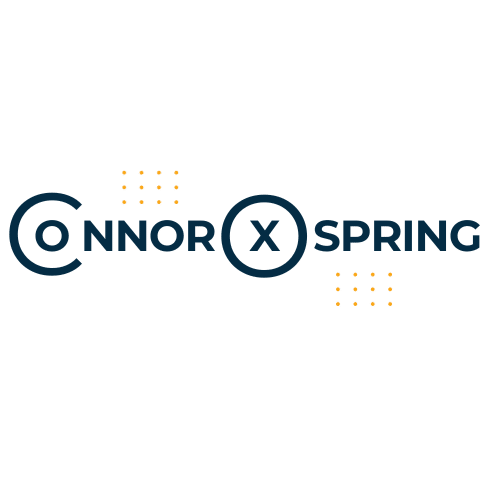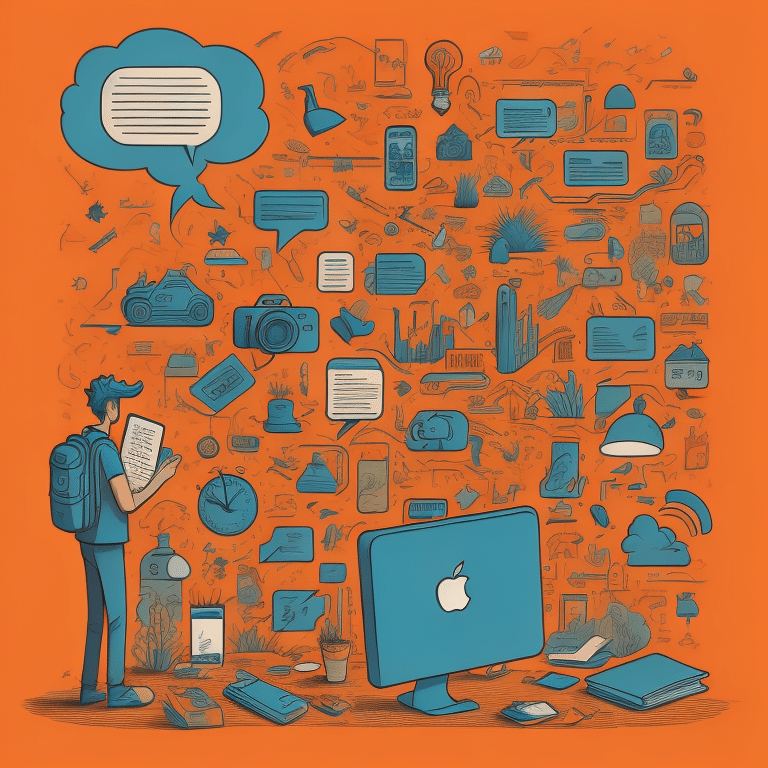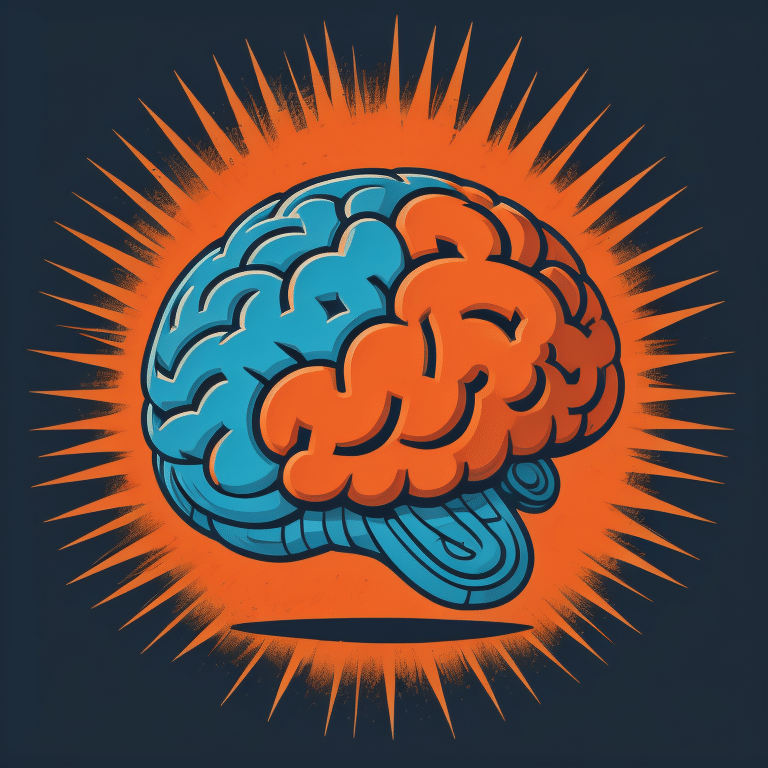Hello all, and welcome back to another entry in my ponderings. Today, I want to talk about the rise of misinformation and how we can work on ourselves as the first solution to this problem. I understand that many platforms and governments wish to tackle these issues, but who is to say there is not a hidden agenda around these sources? After all, whatever you read and consume online will have a level of bias based on the individual who has produced the documents.
So why has this topic come to the forefront of my mind….
The Rise of Misinformation
Well, the other day, I was sitting and talking to my future sister-in-law, and she mentioned a “special announcement” scheduled for the royal family. I did my own research on the topic and found that this information was widespread. Not only was it the top trending topic on X, but it was also littered across TikTok and YouTube.
As we should all attempt to do, I wanted to get the best source – usually, the source that the topic entails. It turns out, with a little research, this was no more than several content creators spreading misinformation that was not accurate.
There was no announcement.
As I searched deeper into the bowels of this topic, on the same day, I also saw many media outlets stating that Donald Trump had indicated that there would be “A Bloodbath” if he did not win the election. Concerning headlines for sure, and no matter your opinion of him – this should concern all that believe in democracy, even with its current failings here in the UK.
I found multiple short clips all over social media and the large media outlets with this “Bloodbath” statement directly from the video. But as per many things nowadays – it was taken out of context. A video that had been cut to suit the agenda of the writer and the companies they work for.
On searching for the full video (which was not hard to find, may I add), the context was a reference to the automotive industry being carnage “a bloodbath” if he was not elected. He sought to apply 100% tariffs to vehicles that were being imported into the country. This had no reference to what the media was making out. Whether you believe this or not, it is concerning that major media outlets are taking action to spin their agendas.
The case is clear as day.
And these two cases were in the space of two hours.
Navigating the Maze of Misinformation
In today’s world, misinformation is everywhere, causing confusion and chaos (Mikati et al., 2023). But what exactly is it? Well, think of misinformation as innocent mistakes – like when your friend shares a rumor without checking the facts. On the flip side, disinformation is more like a deliberate lie spread to deceive others (Saltz et al., 2021).
Social Media
So, where does all this false info come from? You guessed it – social media. The spread of misinformation is often facilitated by social media platforms, where misinformation can be rapidly disseminated and amplified (Wu et al., 2019). The intertwining of misinformation with social media platforms has exacerbated the issue, with misinformation being driven partially by the actions of bots on these social platforms (Lanius et al., 2021).
This continues to fuel further polorisation in our global society. Not good for any of us that want to all come together as one people – as unlikley as that might be.
But it’s not just technology at play here. Our own brains can trip us up too. Psychological factors also play a role in the susceptibility to misinformation, with individual differences in psychological, demographic, and behavioral traits influencing the likelihood of sharing and believing false information (Nan et al., 2022).
The misinformation effect, where individuals recall incorrect information instead of the actual event due to exposure to post-event misinformation, further highlights the cognitive processes involved in the spread of false information (Smith et al., 2017).
Put simply, we believe things just because we’ve seen them online, even if they’re not true.
Fighting Back Against Dis & Misinformation
So, what’s the bottom line here? Misinformation isn’t just a nuisance; it’s a full-blown crisis. But fear not, dear reader, for all hope is not lost! By arming ourselves with digital literacy and honing our critical thinking skills, we can navigate through this maze of misinformation and emerge unscathed.
Well… we can try our very best.
My Inital Ponderings
So, in a world that is now inundated with information how to we filter through sources that are credible. How can we take our own initiative to combat these developments.
My argument is to start with yourself. Something that I would personally like to do.
Now, I would say (whether true or not) that I have a well-rounded knowledge in the fields of Business, Logistics, Operations, Supply Chains, and Digital Marketing, and I guess I could argue fitness and finance with my interests and continuous learning in the topics.
Where I fall down is my knowledge of other areas.
Jack of All Trades – Master Of None
Now, I am not saying that someone can be an expert in all fields – I am certain that there are many people who are better than me in the fields I consider myself well-rounded. But this does not mean that we can learn more than the average person in multiple fields to gain a broad understanding of the world and the chaos that ensues within it.
I am not saying that we will be able to control this chaos – very few can – the only thing we can control is ourselves. By gaining a well-rounded understanding of the world and the people within it, we can have educated conversations based on facts, not fiction.
I have fallen foul of this myself, using media as my sources for topics that I am not well-rounded in. In doing so, you could argue that I have fallen into the misinformation trap myself.
And that is why I am writing this so-called “pondering”.
The Practice of Relearning
By relearning the fundamentals of the world and the dynamics that govern it – we can base our opinions on what we know. I would argue that this is very little – we are only human, and there are so many questions in this world that go unanswered or are based on theory alone.
But if we know the truth – if there is such a thing. That is all we can really ask for. We should remove our biases and prejudices and start again with a beginner’s mind. Learning fact from fiction. Calling out mis and disinformation when we are exposed to it.
A more educated society is one that can form its own opinions. Not one that follows the herd whether that person is right or wrong.
Learning to not follow. Yet, to think for ourselves.
Learning to listen more and interrupt less.
Uncovering agendas and biases behind the content that we consume.
Active Listening & Admitting You Just Don’t Know
Learning to understand the point of view of another person and not berate them for possessing that opinion but to understand where it stemmed from in the first place. From this, form your own opinion based in fact – tell your point – and walk away.
Most importantly, we should learn to accept that we cannot know everything.
We are only human. If you don’t know –say, “I don’t know.”
It seems like everyone has an opinion on everything nowadays, even when they have no background in that field. I have fallen foul of this as well and want to work on my own ability to say “I just don’t know”.
At that point, if you deem it worth your precious time, educate yourself and form your own opinion. Then, you can have an educated conversation that is not based on “what I read on the internet.”
How Do We Address The Problem of MisInformation?
So…
How do I want to address these problems myself? Well a good starting point is looking into what the research states.
Becoming More Educated On Topics That We Consume
There arises an urgent call for scalable educational interventions aimed at enhancing individuals’ capacity to discern the credibility of digital news sources (Axelsson et al., 2021). The endeavor to combat misinformation necessitates a multifaceted approach. Fact-checking assumes a pivotal role as a cornerstone of the press in a democratic society, while the influence of social media platforms in either perpetuating or mitigating misinformation remains a topic of keen interest (Coddington et al., 2014; Zafarani et al., 2021). Educational initiatives aimed at bolstering critical thinking skills and digital literacy are indispensable in empowering individuals to differentiate between authentic and false information (Axelsson et al., 2021).
My Plan
Here is the plan (I may or may not add to this list).
Consume Less social media
Unfortunately, as many people have, I have fallen into the social media trap. Of course, it is hard when the cards are stacked against you. You cannot compete with the algorithms that these platforms have put in place. I use two major platforms, X and YouTube. I want to reduce this time to no more than 30 minutes a day moving forward. In doing this, I will reduce the information that I consume online (unless for entertainment purposes) while I undergo my “education.”
Use Your Phone Less
I plan to leave my phone at home whenever I nip out, opting to use cards instead of Google Pay. I may have to brush the dust off my wallet, which hasn’t seen the light of day in a while, but it is for the best. When I am not calling someone, I want my phone to be out of arms reach so I am also not tempted by the doom scroll. This doom scroll is often flooded with misinformation or content that only provides one side of the argument and not the complete picture.
Saying “I Don’t Know” More
By checking yourself before you speak, you can ensure that you are not feeding the misinformation train. In parallel to this, I want to start pausing before I speak on any topic, forming my answer and ensuring that I am not about to speak on a topic that I know very little to nothing about.
Educate Yourself
Before I take part in any further discussion on matters outside of my “well-rounded” fields, I will ensure that I am well-read in the areas listed below. Whether I manage to read and digest all this information is another thing – but I can certainly give it a go as part of my broader plan during my daily reading and study time. As part of this, I will also seek to include any of my readings in my “External Brain” – for reference later.
You check out my playlist that covers a chronology of history and existence here. This covers many different aspects of the areas below.
Political Science
This is the obvious starting point. Political science covers the theory and practice of politics, including comparative politics (studying different political systems), international relations (how countries interact with each other), political philosophy (theoretical underpinnings of political systems), and public policy (how policies are formulated and implemented).
International Relations
This field specifically focuses on the interactions between states, international organizations, and other non-state actors. It examines issues such as diplomacy, conflict resolution, globalization, international law, and global governance.
History
Understanding historical contexts is crucial for comprehending current events and geopolitical dynamics. Studying history provides insights into the long-term trends, cultural influences, and past conflicts that shape the contemporary world.
Economics
Economic factors play a significant role in shaping political decisions and global relations. Studying economics helps you understand issues such as trade, development, globalization, economic inequality, and the impact of economic policies on societies.
Sociology
Sociology offers perspectives on how social structures, institutions, and norms influence politics and vice versa. It helps in understanding issues related to identity, power dynamics, social movements, and the role of civil society.
Geography
Geography provides insights into the spatial dimensions of politics, including territorial disputes, resource distribution, environmental challenges, and the impact of physical geography on human societies.
Law
International law and domestic legal systems shape the behavior of states and international actors. Studying law helps you understand the legal frameworks governing international relations, human rights, conflict resolution, and trade.
Cultural Studies & Anthropology
Understanding different cultures, belief systems, and societal norms is crucial for navigating global politics with sensitivity and awareness. Cultural studies and anthropology offer insights into cultural diversity, identity politics, and the role of culture in shaping political behavior.
Language Studies
Proficiency in multiple languages, especially those spoken in regions of geopolitical significance, enhances your ability to access diverse sources of information and engage with different communities on a global scale.
Environmental Studies
Environmental issues are intricately linked with political decisions, international relations, and global dynamics.
Philosophy
Studying philosophy can help develop critical thinking skills, ethical reasoning, and an appreciation for different worldviews and ideologies. Philosophical inquiry into topics such as justice, morality, and governance can provide a deeper understanding of political systems and societal values. Moreover, engaging with philosophical ideas can foster personal reflection and existential fulfillment.
Psychology
Understanding human behavior, motivations, and cognitive processes can provide valuable insights into individual and collective decision-making, which are crucial in politics and international relations. Additionally, knowledge of psychology can contribute to personal wellbeing by enhancing self-awareness, emotional intelligence, and interpersonal relationships.
Religious Studies
Religious Studies offers a profound lens through which to comprehend the complexities of the world and global politics. Understanding various religious traditions, their beliefs, practices, and historical contexts, provides insights into the motivations and actions of individuals and groups on the global stage.
Document & Share Your Findings
I think the battle against misinformation comes not only from ourselves but also from the sharing of your newfound knowledge with the world. What you know now is that someone might not. Never think that a concept is above or below you, or anyone for that matter.
Approach all your teachings with a Beginners Mind. Approach it as someone who knows nothing.
I think this is a great method to reduce the spread of information by tackling it through content that is based on sound education.
Research has shown that the act of documenting learning, whether through note-taking, summarising, or other forms of recording information, can have a profound effect on memory retention. One study by Karpicke and Roediger (2008) demonstrated that actively engaging with the material through practices such as summarisation and self-explanation led to better retention of information compared to passive reading alone.
By actively processing and organising information into a coherent structure, learners can better encode the material into their long-term memory. How do I plan to do this? You probably guessed it if you had read my articles up to this point through a website.
I will launch the website WYDK (What You Don’t Know). I plan to include different subdomains for all the teachings listed above and ensure that all my publishing is well-referenced and documented – heading back to the days of university. I guess you could call it my “public external brain” – it doesn’t really roll off the tongue, but we will go with it.
Uncover Bias in Your Reading
Once educated in the fields you are reading about, I see the next step as using one of the many applications on the market that analyses the companies and individuals writing the articles. After a quick search, I found the website https://mediabiasfactcheck.com/, which works well. This will allow you to see through and, at the very least, understand media biases.
Question Everything That You Read
Unless you know the answer to the question (based upon the education that you have conducted), ensure that you question everything. This step will be the final part of my plan, as we must all do this in the world we currently live in. What was the context of that statement? How is the person creating the content funded? Is the source credible (unfortunately, in contemporary society, this is easier said than done)? You get the point, question everything, and then form your own opinion. If you don’t know, say so.
Conclusion & Final Thoughts
So that is the current plan. I am sure I will find out whether it works over the next few months. As usual, I will provide updates on the progress of this plan through this blog. If I add any additional sections to the plan, I will update them above and provide a write (update) in front of those that I have amended.
I would love to hear from you if you have any thoughts on the current level of misinformation that we are witnessing. If you think there are any ideas that I have missed, let me know, as I would love to expand on this plan as I go.
As always, readers. Take care in this world we live in. Above all else – take control of your own life and quiet your racing mind.



